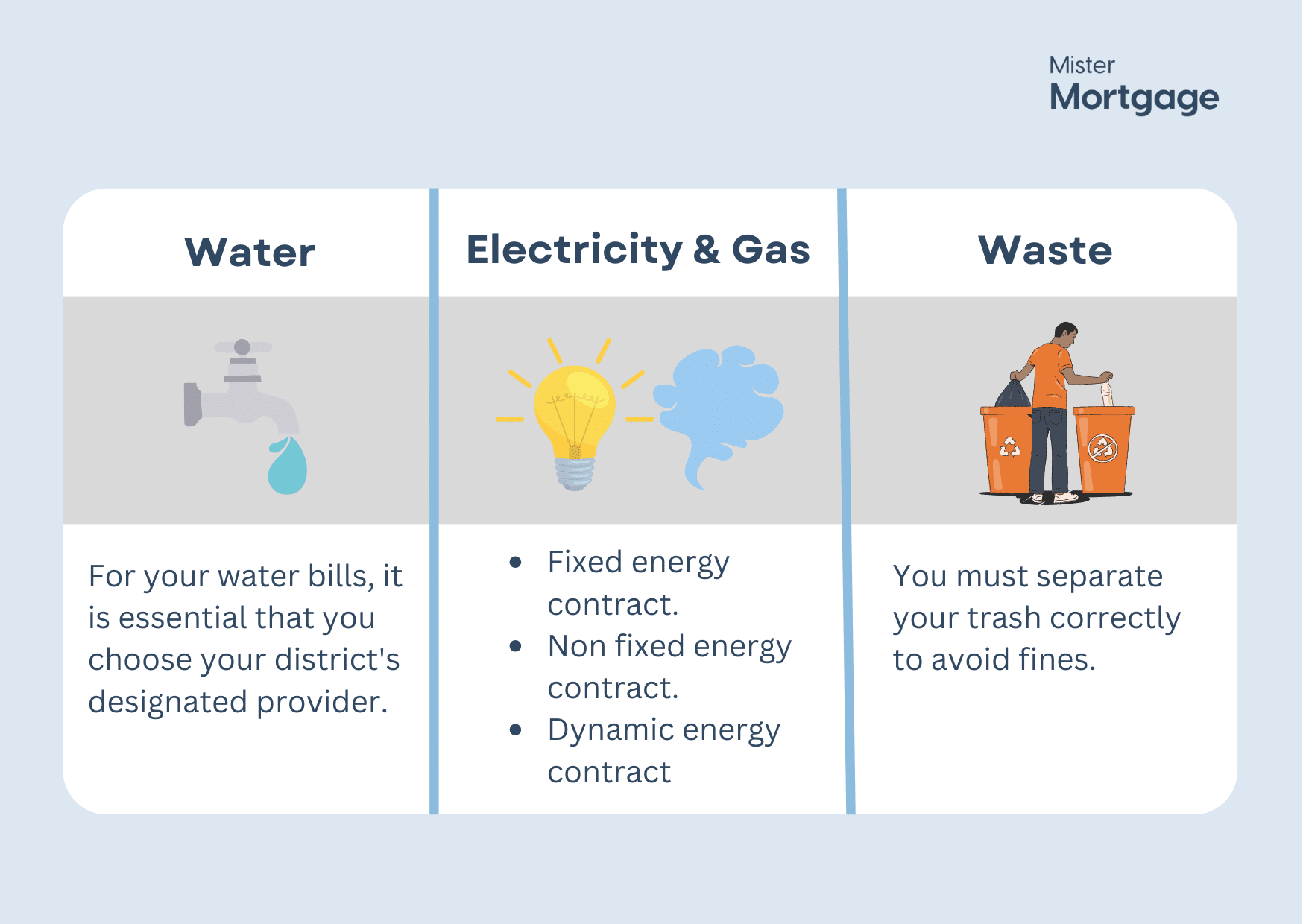
After getting the keys to your new place, it's time to arrange utilities. If you're new to the Netherlands, you must learn about setting up these services.
The Netherlands has a unique system that is more decentralized regarding contracts with other countries, and this is a common struggle for expats new to the country. In this article, we explain how utilities work in the Netherlands.
It is advisable to organize gas, water, and electricity for your new house as soon as possible. Usually, you can begin this process three months before moving in.
If you are moving houses, this is also an opportunity to assess whether you want to stay with the same energy provider. Terminating your contract with your energy provider can result in a financial penalty. So, it is important to assess how much money you could save by switching energy providers versus how much it will cost to terminate your current contract.
Where can I arrange my utilities?
You can arrange all your utilities online by comparing providers, costs, and contracts. Your choice depends on your circumstances and preferences. If you have used a real estate agent to rent or purchase your home, depending on the agency, they may arrange these matters for you.
Home utilities: water
Ten water supply companies in the Netherlands are designated to a particular region. For instance, if you live in Amsterdam, you would pay Waternet for your water bills. However, if you live in the Hague, you must use Dunea as a water service provider. Because water, like gas and electricity, is not privatized in the Netherlands, you can't choose your water provider. So, when setting up your water bills, you sign up online with your region's respective water provider.
Home utilities: electricity and gas
In the Netherlands, there are three types of energy contracts you can choose between:
-
A fixed energy contract (vast energy contract): is with your energy company for a set period. This type of contract can be advantageous because it allows you to set your energy rates from the beginning of your contract period, meaning your bill will not increase due to market changes. However, if market prices of energy decrease over the term of your contract, then you will not benefit from these changes.
-
Non-fixed energy contract (variable energy contract): This contract is set indefinitely and can be cancelled monthly. Although the term is not fixed, the energy rate generally stays the same for 6 months.
-
A dynamic energy contract (dynamic energy contract/flexible energy contract): is indefinite and can be cancelled monthly. With a dynamic energy contract, prices fluctuate per hour. This means you will benefit from a price decrease every hour energy prices drop. However, this also implies that you will experience increases in your energy bill when prices increase.


Heating systems
Although most homes in the Netherlands still rely on natural gas for their heating systems, the Dutch government is shifting towards more sustainable heating systems. In 2026, homeowners must install at least one heat pump when updating or replacing their central heating system. Therefore, from 2026 onwards, we will see a growth in the use of electric heating pumps. So, consider installing a heat pump if your home's heating system needs to be updated.
Additionally, district heating systems have increased in popularity in the Netherlands over recent years. For instance, Amsterdam aims to be a natural gas-free city by 2040, which has led to initiatives set by the municipality of Amsterdam to incorporate more district heating systems. However, these district heating systems will not be incorporated into the old city centre of Amsterdam because of an overload of underground pipes. Therefore, by 2040, residents in these areas will need to switch to heat pump systems.
Waste Management
The Netherlands is renowned for its strict waste management and is no stranger to sending out hefty fines to citizens who do not comply. Therefore, to avoid receiving a hefty fine, it is very important that you, as a resident, are aware of this system. Waste bins in the Netherlands are usually separated by organic waste, glass, paper/cardboard, and general waste.
These types of waste bins can be found near your home. Special bins are allocated for textile and electronic waste, but these may be farther away from your home. Suppose you have any bulky household or construction waste. In that case, you can arrange for your local municipality to collect it or drop it off yourself at your local waste management centre. Lastly, you also must be aware that you must pay trash tax to your local municipality.
Schedule a free call with our mortgage advisors. Our dedicated team manages your mortgage application from start to end, and we handle all communication and paperwork with banks.
-
Access to a trusted network.
-
Highly competitive rates and flexible terms.
-
Guidance through the entire mortgage process.
-
English translations of bank documents are shared.

- 100% Independent Advice




